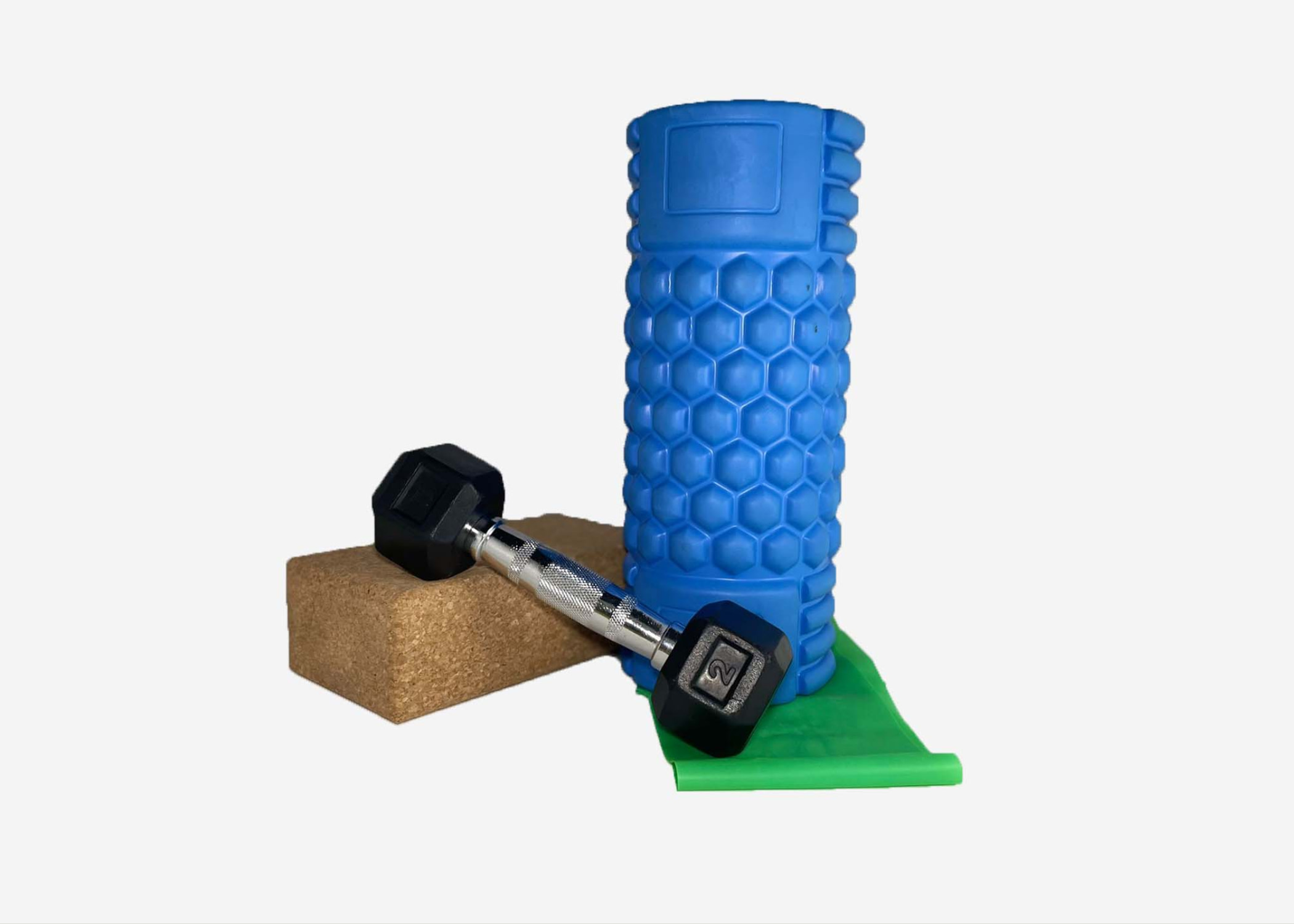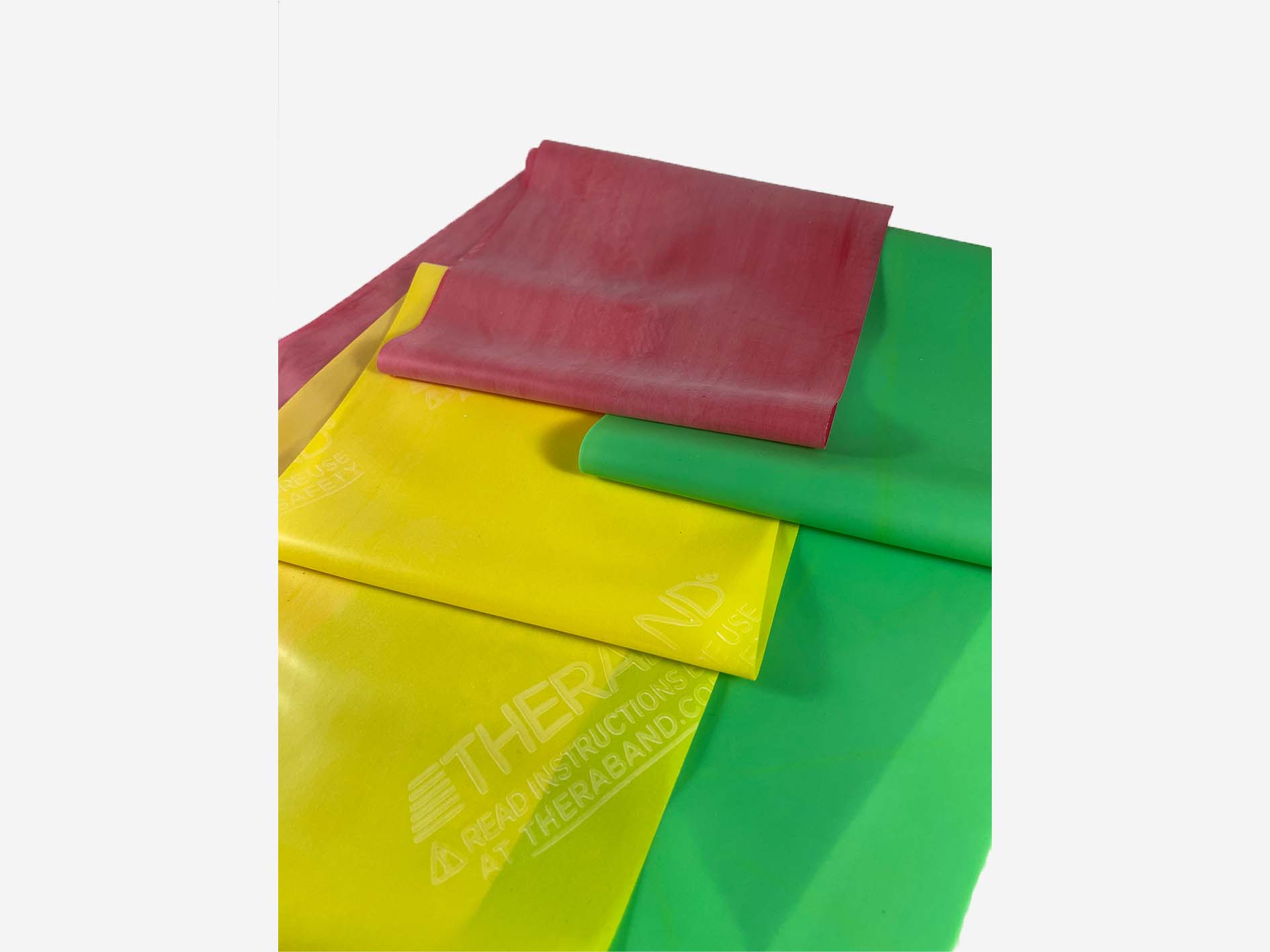
The thoracic spine
There are different types of high or mid back pain. Usually, pain is described in the upper back and lower neck, between the shoulder blades or around the ribcage. Prolonged sitting, desk work and heavy lifting often aggravate the symptoms. Stiffness and pain can be present in the mid and upper back. Staying active and doing exercises is often helpful.
1. Opstrekken
Neem plaats op een stoel. Breng beide handen achter de nek en zorg dat uw ellebogen naar voren wijzen. Beweeg zo ver u kunt naar achteren maar doe dit alleen vanuit het bovenste deel van uw rug.
2. Olifantenoren
Neem plaats op een stoel. Breng uw handen naar de oren en de ellebogen zijwaarts. Beweeg de ellebogen vervolgens naar voren en weer zover mogelijk zijwaarts.
3. Olifantenoren rotatie
Neem plaats op een stoel. Breng uw handen naar de oren en de ellebogen zijwaarts. Draai het bovenlichaam naar rechts en vervolgens weer terug naar het midden. Doe dit zowel rechts als links.
4. Olifantenoren lateroflexie
Neem plaats op een stoel. Breng uw handen naar de oren en de ellebogen zijwaarts. Beweeg uw bovenlichaam vervolgens naar de zijkant en weer terug. Doe dit zowel links als rechts.
5. Extensie
Plaats een matje/handdoek op de grond en ga op uw buik liggen. Breng de handen onder uw kin en beweeg uw bovenlichaam van de grond.
6. Pull over
Plaats een matje/handdoek op de grond en neem plaats op uw rug. Breng de benen met gebogen knieën omhoog. Breng de armen voorwaarts met het gewichtje tussen beide handen. Beweeg vervolgens het gewichtje langzaam naar achteren en weer terug voorwaarts.
7. Rutsch
Plaats een matje/handdoek op de grond. Ga op uw knieën zitten en steun met de ellebogen op de grond waarbij de onderarmen onder het hoofd zijn. Plaats elleboog voor elleboog een stukje voorwaarts.
8. Ademhalingsoefening (thoracaal)
Plaats een matje/handdoek en ga op uw rug liggen. Belangrijk bij deze oefening is om elke positie even vast te houden en de ademhaling onder controle te houden. Stap 1: Breng de armen voorwaarts tot 90graden Stap 2: Breng de ellebogen vervolgens naar de grond Stap 3: Breng de handen naast het hoofd naar de grond Stap 4: Breng de armen vervolgens terug langs het lichaam
The meaning of a thoracic spine injury
There are different types of high or mid back pain. Sometimes it is a sharp stabbing pain in a specific spot or the whole upper back can feel very stiff. Usually, pain is described in the upper back and lower neck, between the shoulder blades or around the ribcage. Extending or twisting the mid and upper back can be challenging due to stiffness and pain.
The causes of thoracic spine injury
The onset tends to be gradual. It can be acute, usually due to an uncoordinated movement. Desk work can cause injury if you maintain the same posture for prolonged periods. Working above shoulder height and stress are also common causes of mid and upper back pain.
The symptoms of thoracic spine injury
The pain can be aching or only occur during specific movements. Prolonged sitting, desk work and heavy lifting often aggravate the symptoms. Similar to how low back pain can radiate down the legs, mid and upper back pain can radiate to the ribcage (pain with breathing), neck, shoulders and arms. You can suffer from stiffness, or a sharp, dull, aching or stabbing pain in the mid or upper back.
The treatment of thoracic spine injury
If the onset was acute due to overuse, the pain tends to resolve itself within 6 weeks. The physiotherapist may be able to assist by addressing limitations for recovery. Treatment can include mobilisations, manipulations, exercise therapy, postural changes and soft tissue techniques to reduce muscle tension. Chronic upper back pain lasts more than 12 weeks. With this type of pain it is important to recognise what factors delay your recovery. For example, workload or work posture. The solution to this would involve mobilizations or manipulations and specific exercises to strengthen the mid and upper back.
Synonyms
Back pain, upper back pain, pain between shoulder blades, radiating pain in shoulder, headaches, stabbing pain, thoracic pain, chronic mid back pain, thoracic spine, pain with breathing, stress, desk job
Advice
If you have any questions regarding the exercises, doubt if you are doing them correctly or aren’t sure they are suited for your condition, please contact your physiotherapist for support.
Attention:
Yourbody.coach offers a range of exercises. Yourbody.coach can not be held responsible if you develop injuries. Always consult your physiotherapist or specialist.

